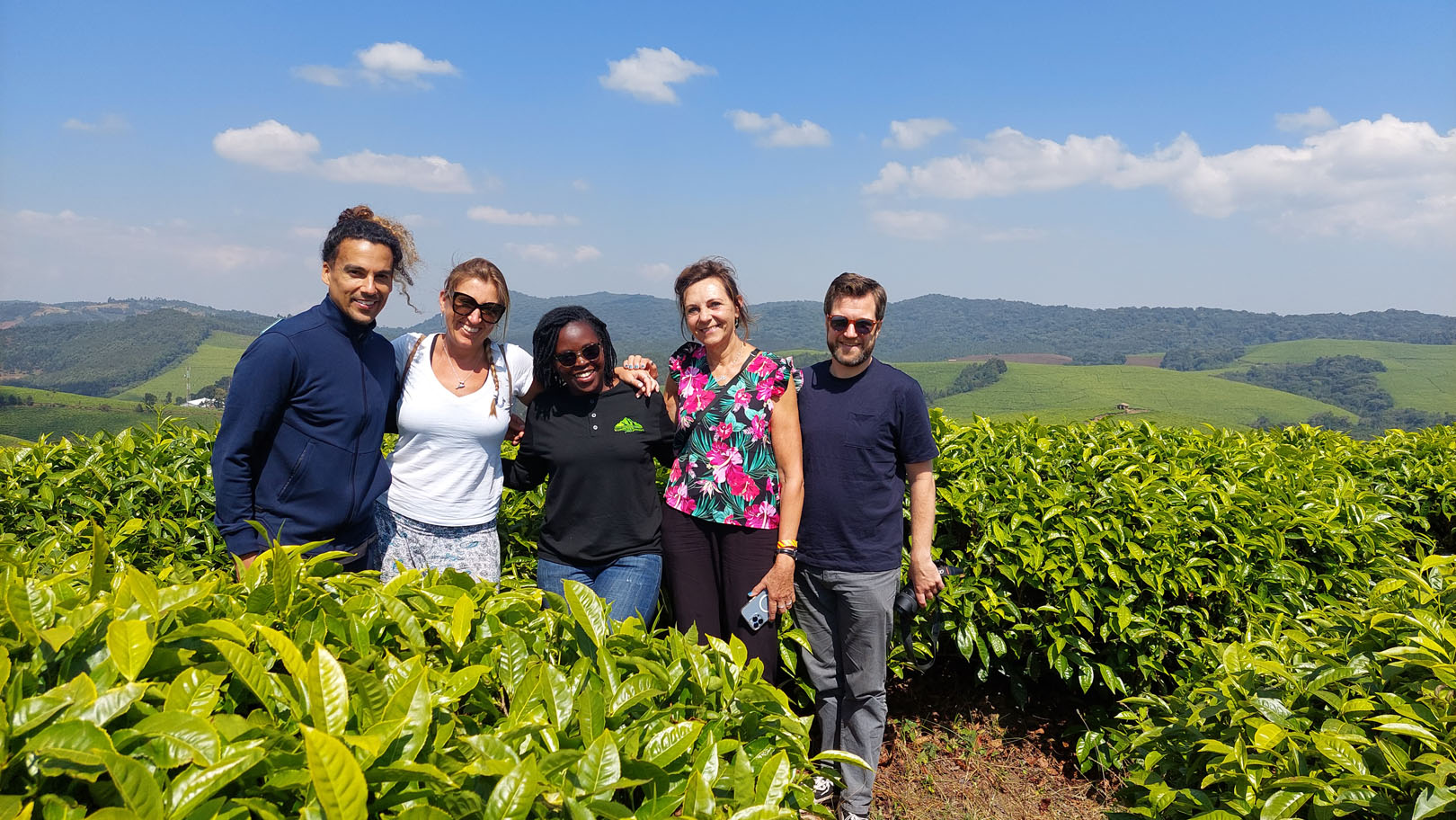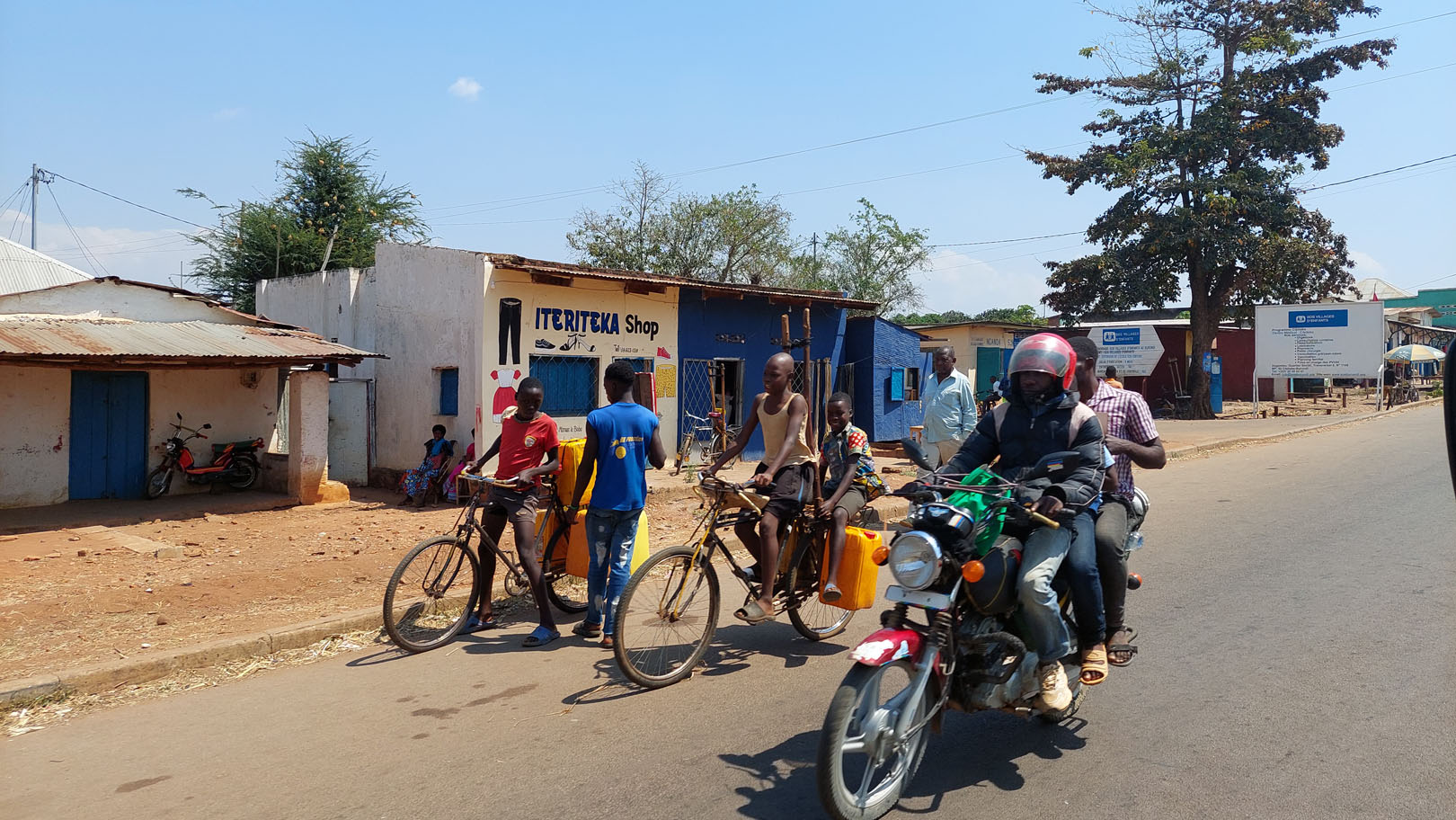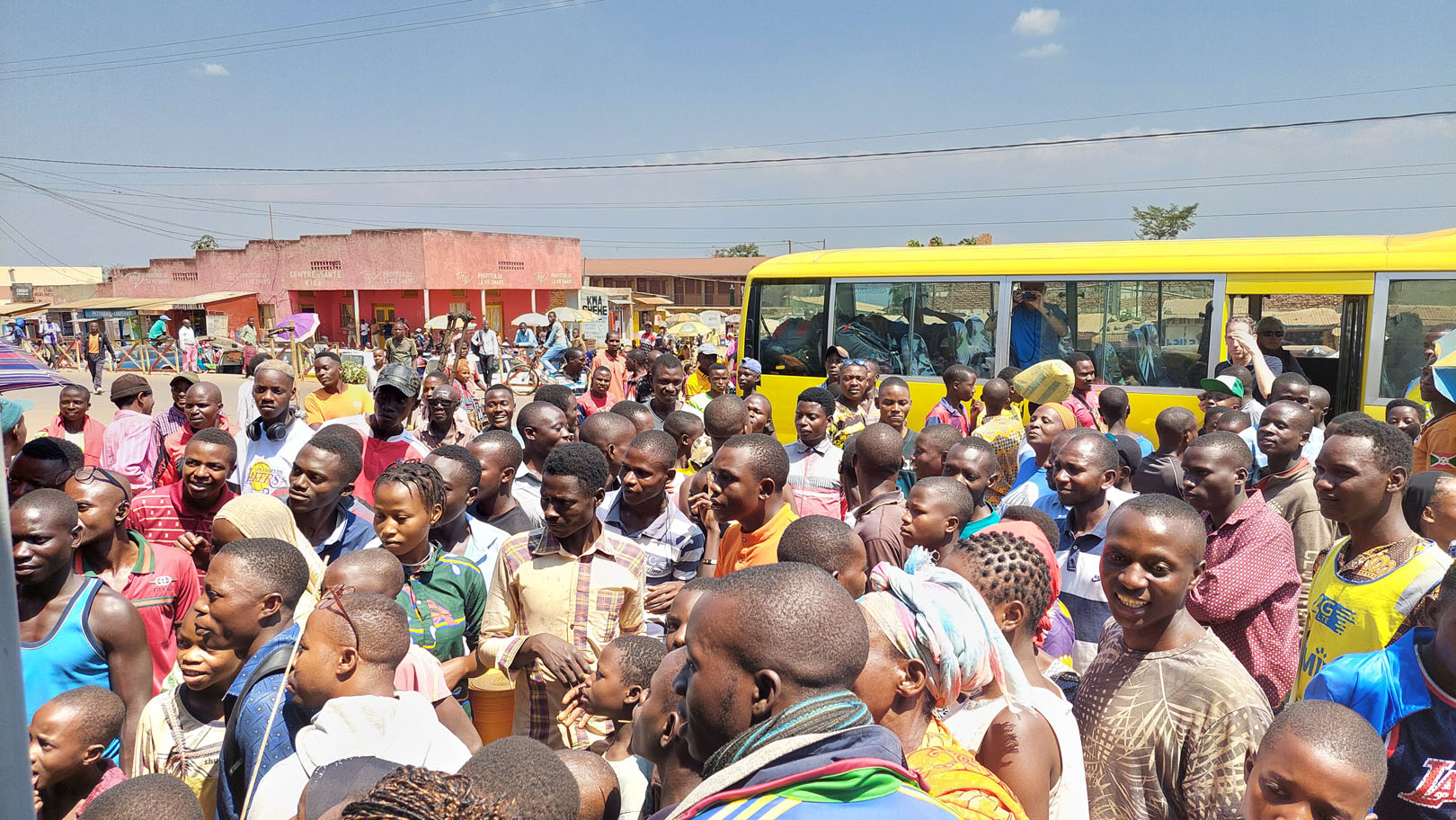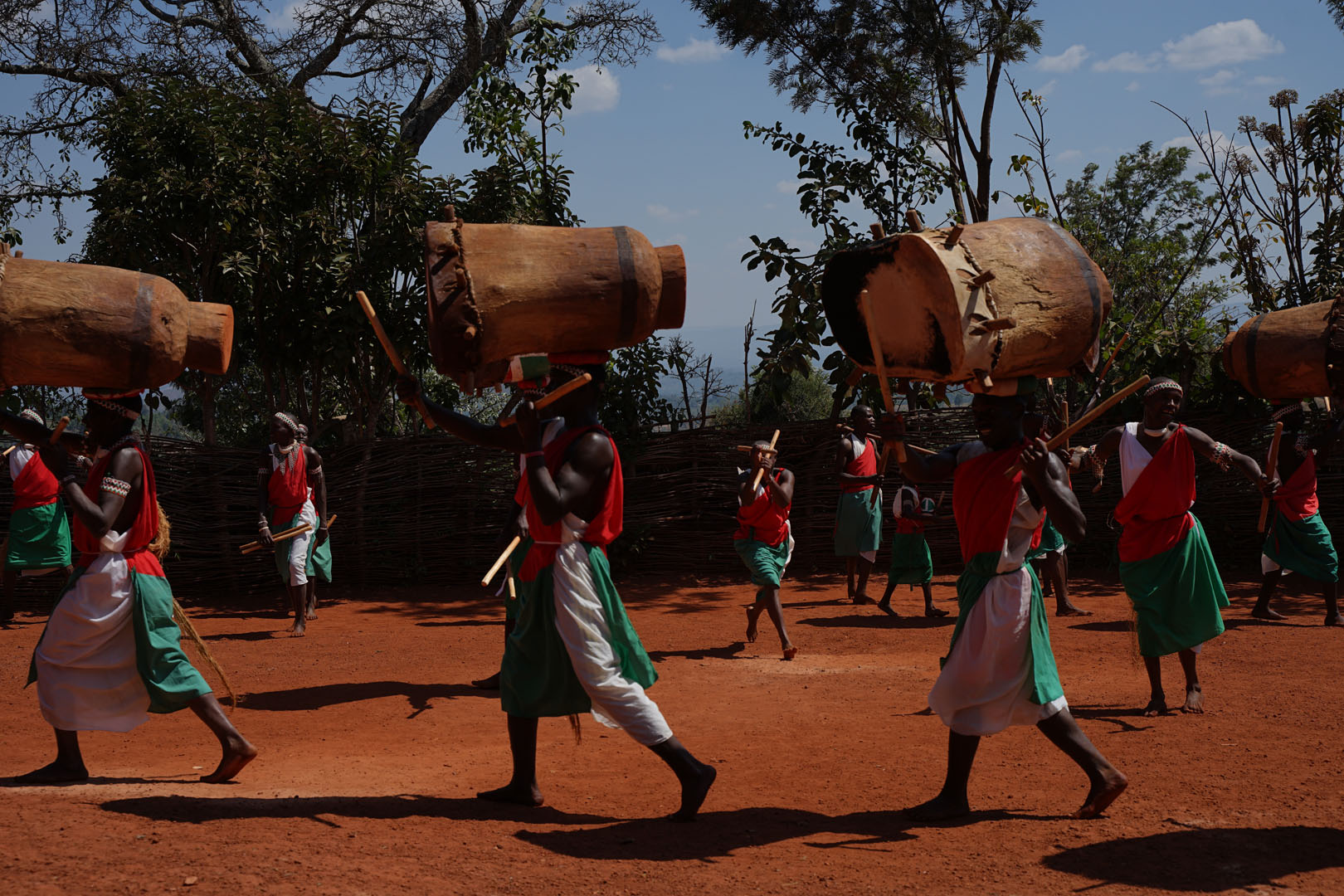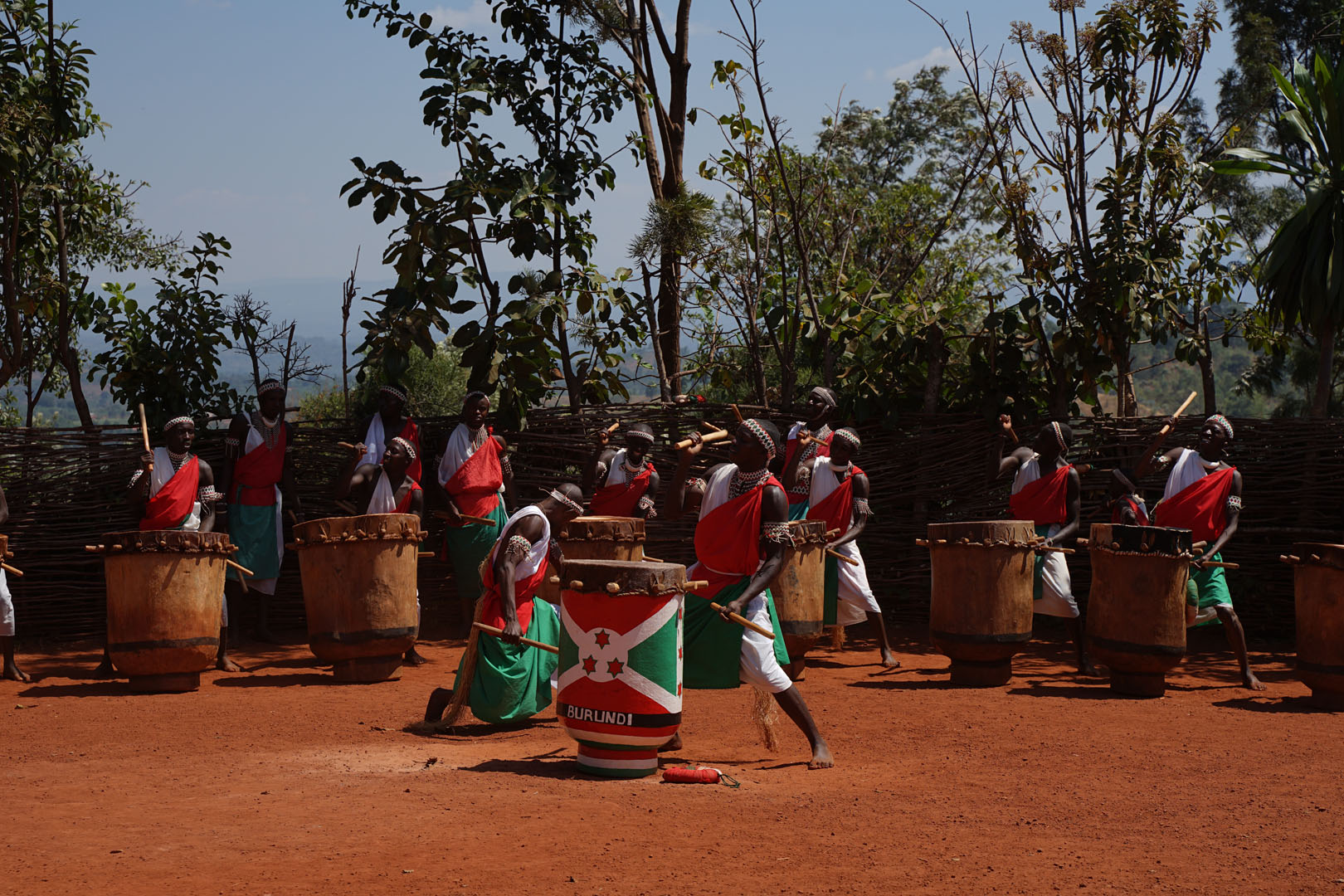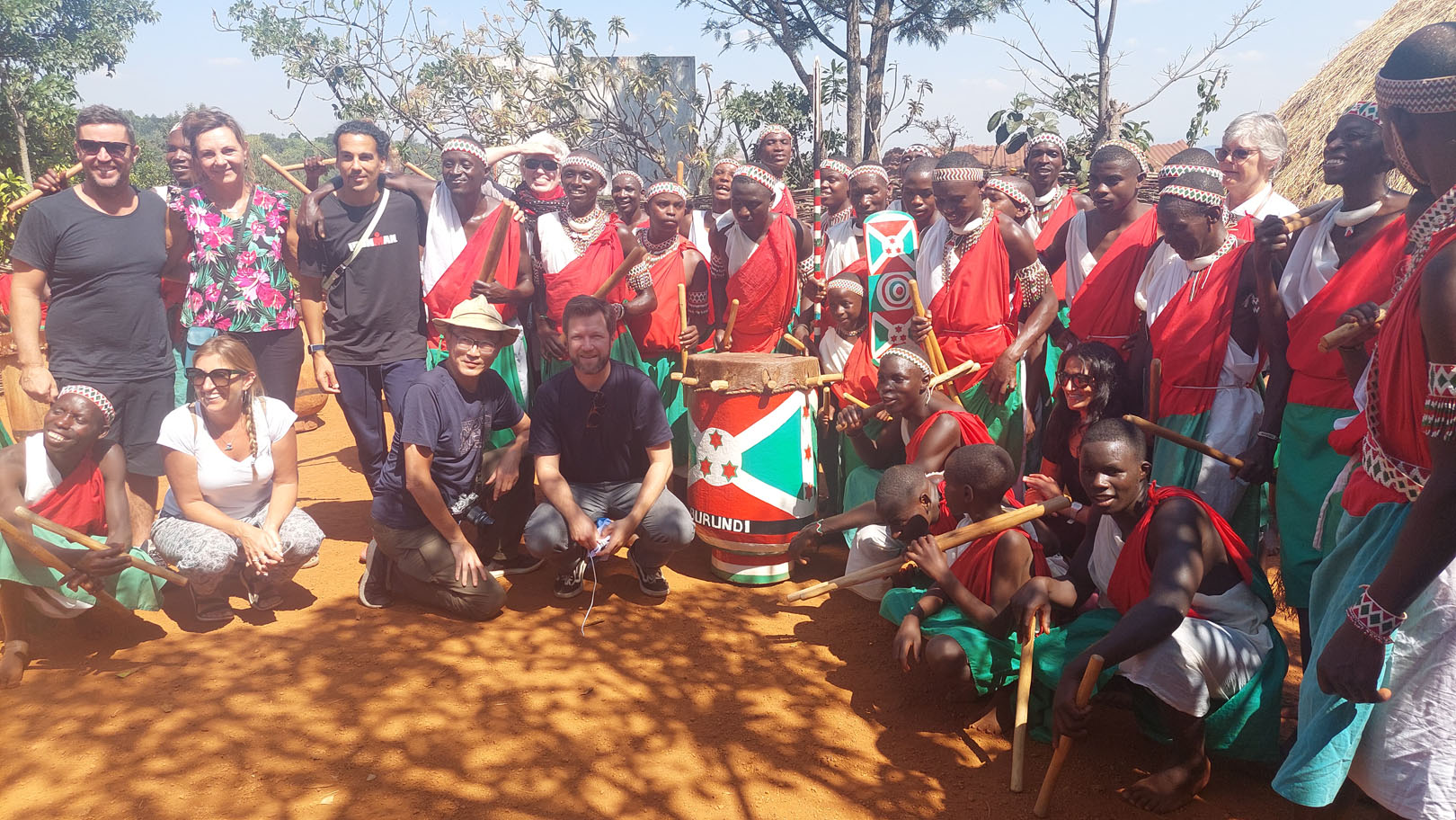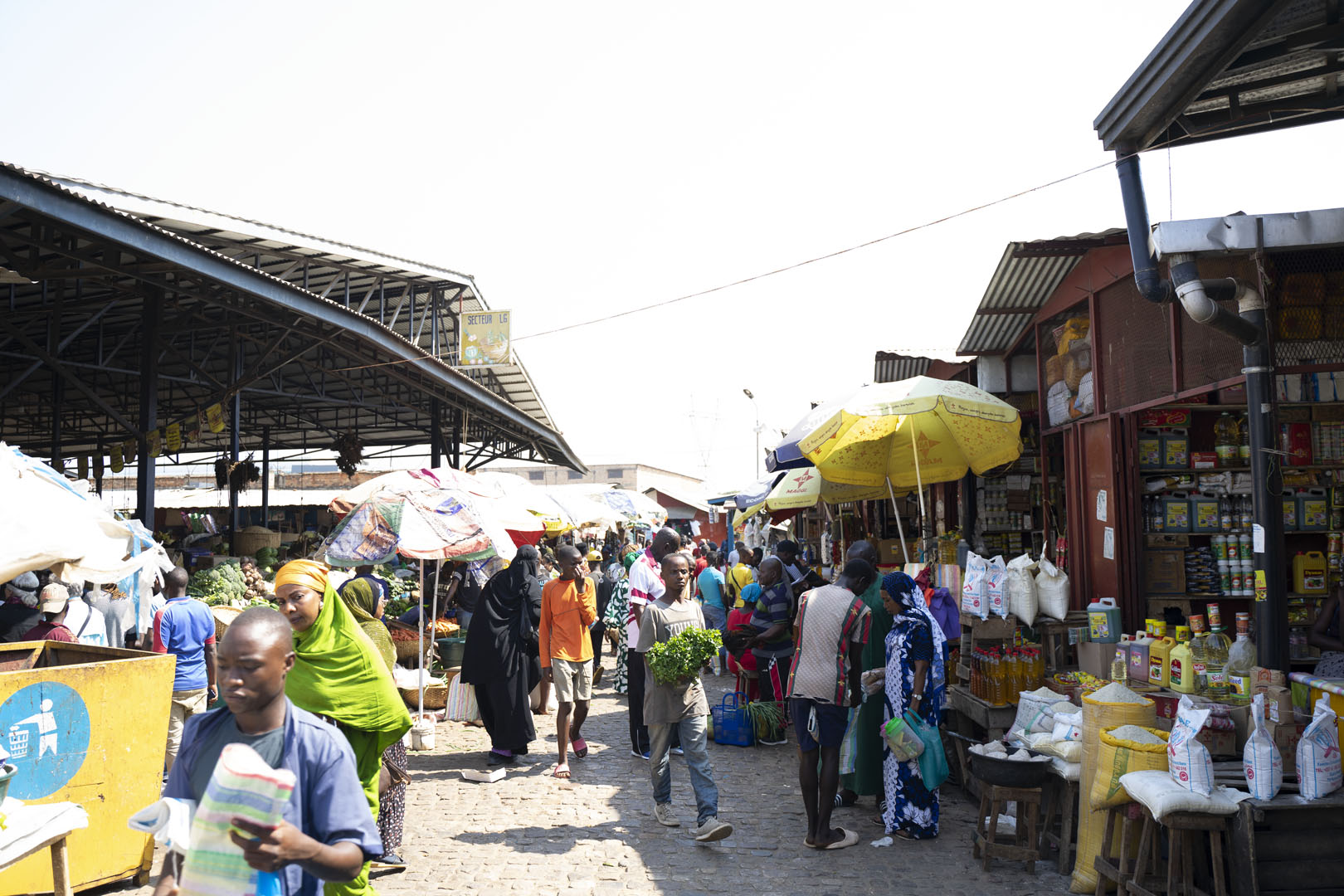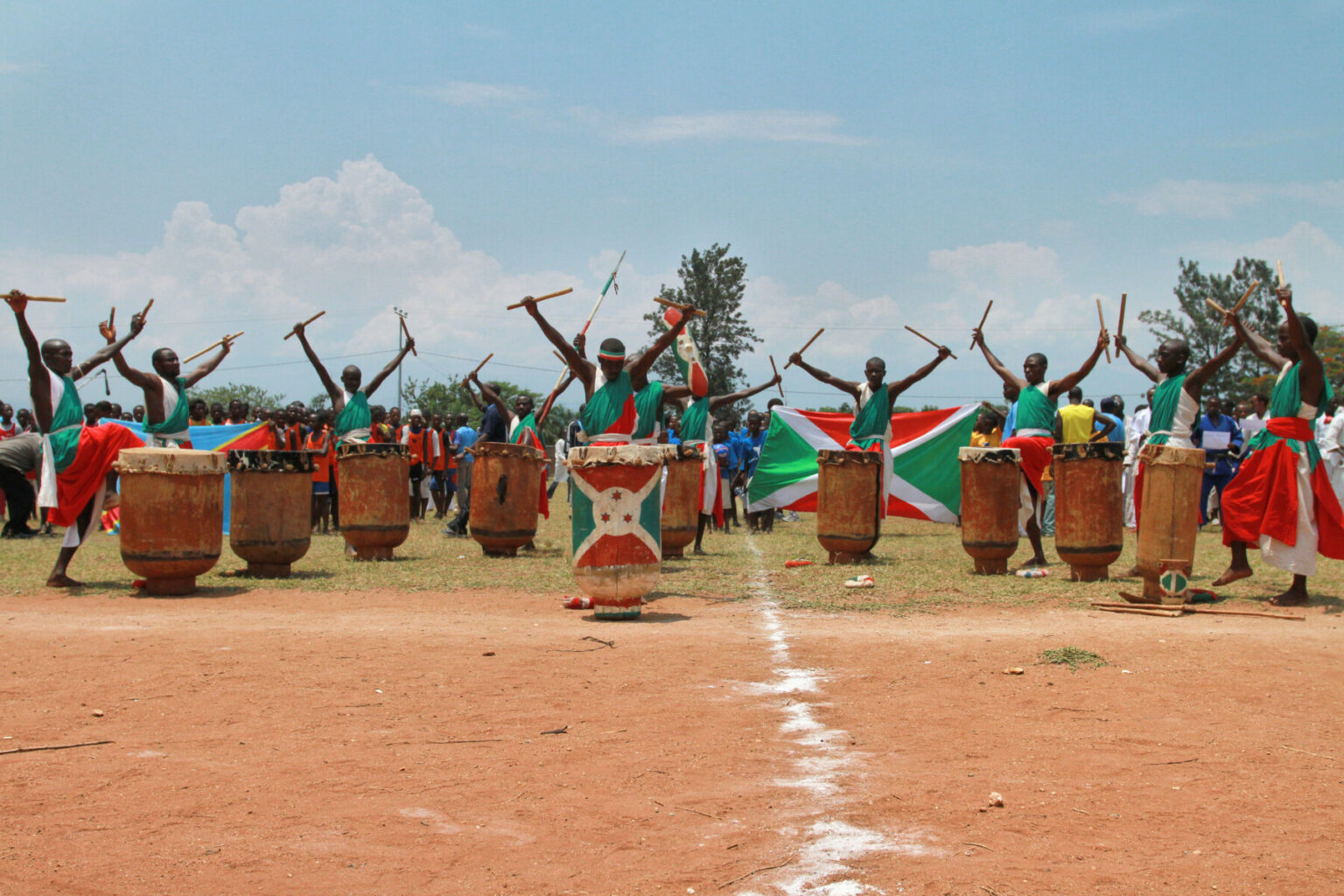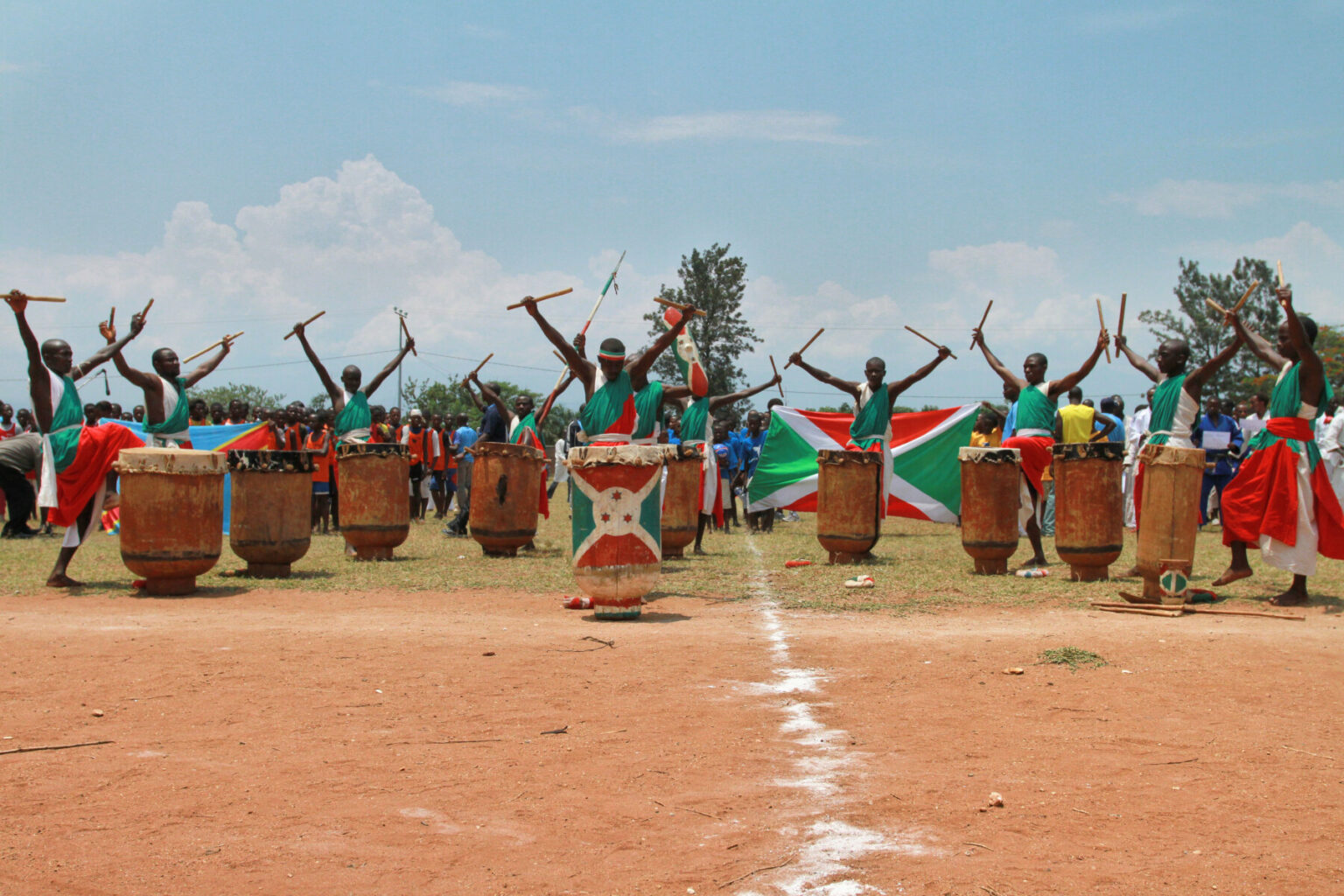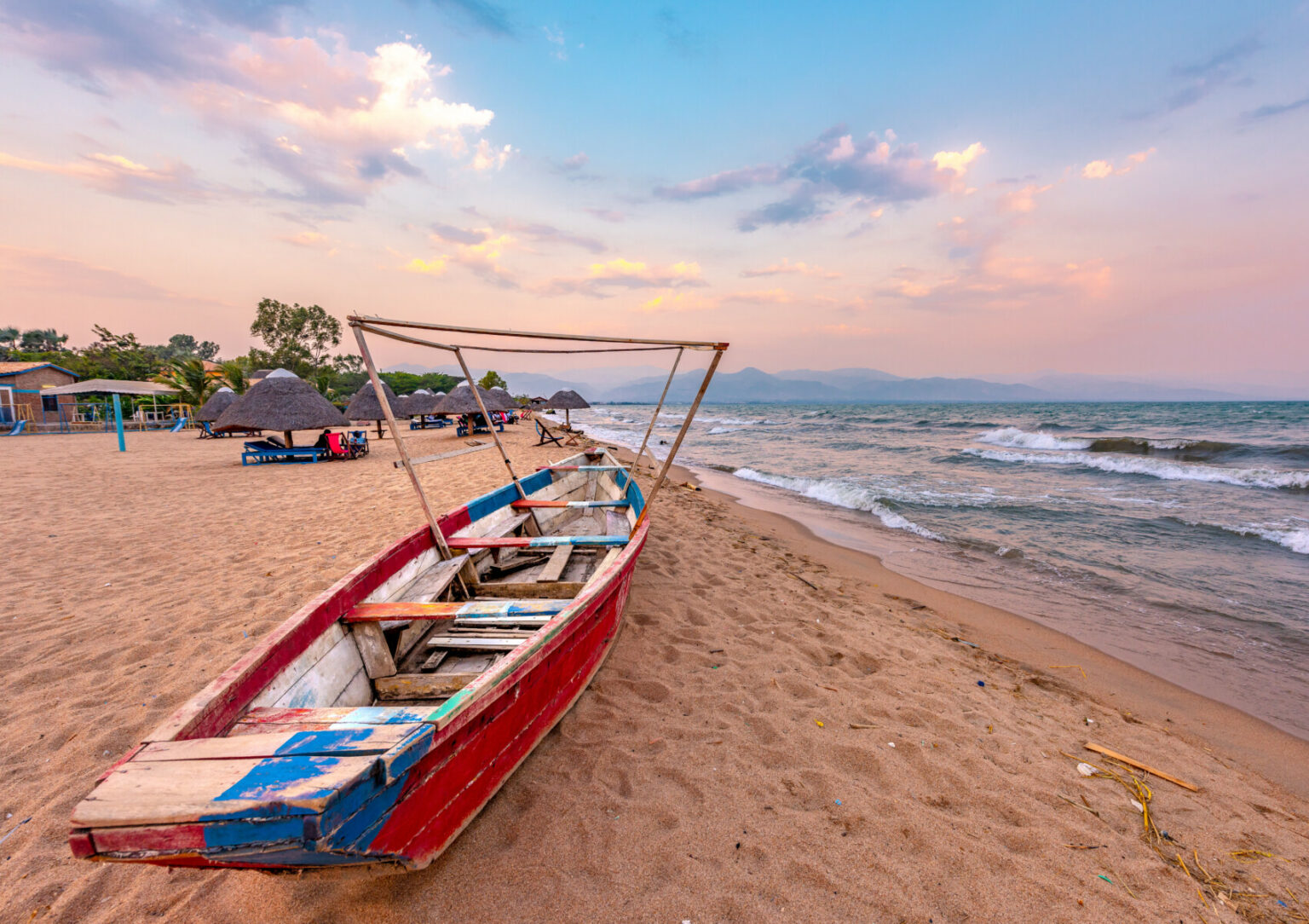YPT Tours to Burundi
YPT has been offering Burundi tours since 2023, as part of our wider East Africa Combo Tour which also takes in Rwanda, DR Congo, and Uganda.
Once one of the most unstable and unknown countries in the world, Burundi now has the potential to emerge as an ecotourism hotspot. As one of the greenest countries globally, its picturesque landscapes – including the scenic shores of Lake Tanganyika and the rolling hills of its interior – offer natural beauty combined with a rich cultural heritage. Burundi is also known for its drummers, national parks, and as the possible meeting place of Stanley and Livingstone during their search for the source of the Nile.
While Burundi’s turbulent past is often overshadowed by its more famous “twin,” Rwanda, the country is moving beyond the political chaos and violence of the 20th century.
Group Tours to Burundi
Currently, you can travel with YPT to Burundi on our East Africa Combo Tour.
The East Africa Combo Tour operates at least annually and starts in Burundi’s largest city, Bujumbura. This trip allows you to see Burundi alongside the neighbouring countries of Rwanda, DR Congo, and Uganda. These states all have overlapping cultural, historical, and economic ties with each other, so it is a great opportunity to experience them all on one trip.
East Africa Combo: Burundi, DR Congo, Rwanda, and Uganda – March 7th – 16th / 20th, 2025 – €1845 / €3995 / €5295
Independent Tours to Burundi
If your availability does not align with the scheduled tour dates, then YPT can organize a private tour for you. We will plan according to your timeframe and budget and can even craft a bespoke itinerary based on your interests. Prices depend on the number of people and what level of accommodation you desire, but YPT can arrange everything you need for perfect independent Burundi tours.
Independent Burundi tours can be done entirely in the country, or be combined with tours to Rwanda or Uganda.
Example of a Burundi itinerary (8 days)
Day 1 – Bujumbura
- Welcome to Bujumbura! Either cross overland from Rwanda (around 5 hours from Kigali with border crossings) or fly into Bujumbura’s airport, which is small but connected to Europe, the Middle East, and the rest of Africa.
- Transfer to your hotel, Club du Lac Tanganyika. As the name may suggest, it is on the shores of the beautiful Lake Tanganyika, the 2nd largest lake in the world.
- Depending on when you arrive, take a walk along the lake or in the centre of Bujumbura with your guide. Perhaps enjoy a barbeque or some beers as the sun sets over the lake.
- Overnight in Bujumbura.
Day 2 – Bujumbura – Rusizi National Park – Bujumbura
- You’ll have breakfast in the hotel and then head 20km outside of the city to visit the wetlands of Rusizi National Park. This beautiful reserve, between Lake Tanganyika and Burundi’s forested interior, is home to hippos, Sitatunga antelopes, and various birds.
- Take a boat trip on the Rusizi River and Lake Tanganyika before visiting a nearby fishing village.
- Transfer back to Bujumbura in time for a late lunch at Restaurant Chez Orphée, a trendy French café in the centre of town.
- Have an afternoon city tour of Bujumbura, learning about its modern history as well as its establishment under German and, later, Belgian administration. Speak to locals and notice how many of them still see Belgium as a powerful country!
- The city has some notable Art Deco buildings from the colonial period, such as the Central Post Office. We’ll also take you to the Central Market to see everyday life in Burundi, as well as the national stadium and Bujumbura’s Cathedral.
- Dinner and overnight at Club du Lac Tanganyika.
Day 3 – Bujumbura – Teza– Kibira Nature Walk – Bujumbura
- After breakfast, drive 50km to Teza, the oldest tea plantation in Burundi. See how the country’s main cash crop is grown and processed on a small scale before tasting a delicious cup.
- Continue your drive through “the lungs of Africa” to reach Kibira National Park (around 2hr). You’ll arrive in perfect time to enjoy a traditional Burundian lunch.
- Spend the afternoon having a nature walk in the park. See how many of the 100 mammals, 200 birds, and countless plant and insect types you can spot.
- Travel 2 hours back to Bujumbura and head for dinner at Botanika, where you’ll taste Belgian bistro cooking with an upscale twist.
- Overnight in Bujumbura.
Day 4 – Bujumbura – Rumonge – Resha
- Leave Bujumbura this morning and start heading south along Lake Tanganyika.
- Stop en route to visit the Livingstone-Stanley monument. While the jury is still out as to whether they first met here or in modern-day Tanzania, it is a scenic spot for reflection.
- Take a slight detour into the Monge Forest to see how palm oil is produced in Burundi.
- Enjoy a packed lunch en route, likely in one of the small villages on the edge of the lake. You might even be able to see fishermen bringing in their catch, as this remains the primary industry here.
- Arrive in the town of Resha around late afternoon. The closest thing Burundi has to a “beach resort,” it might not have the infrastructure of Bali or Dubai but enjoy the laidback atmosphere and perhaps take a traditional boat onto the lake.
- Check-in and have dinner at the Resha Royal Imperial Hotel.
- Overnight in Resha.
Day 5 – Resha – Nyakuza – Karera – Gitega
- Check out of your hotel after breakfast, and head away from the lake to discover the country’s interior.
- Spend most of the morning driving towards the southernmost source of the Nile at Rutovu. Discovered in 1937, this is one of several places that claims to be “the true origin of the Nile.”
- Explore “the German’s Gorge” at Nyakazu, near the Tanzanian border. We’ll also break to have our packed lunch here.
- It’s another couple of hours up to the impressive ‘Chutes de la Karera,’ a collection of four beautiful waterfalls.
- For our final leg today, we have a 90-minute hop up to Gitega, the former royal capital which took over from Bujumbura as the national capital in 2019.
- Check in to your hotel, the Tropitel Hotel, where you’ll also have dinner.
- Overnight in Gitega.
Day 6 – Gitega – Kirundo
- Enjoy breakfast on the hotel balcony, before checking out for your city tour of Gitega.
- We’ll start with the National Museum in Gitega, which houses tens of thousands of historical and ethnographic records which tell the history of Burundi.
- Afterwards, we’ll pay a sombre visit to the memorial for the Kibimba School Massacre. Here, in October 1993, the headteacher put 80 Tutsi students in a classroom before setting it on fire. While much less known than the violence in neighbouring Rwanda, Burundi has experienced similar violence and acts of genocide over the years.
- Have lunch in Gitega before beginning a 3-hour trip north to the town of Kirundo.
- After settling into your hotel, you’ll head down to the royal field to watch a performance by the world-famous Gitega Drummers. Burundi’s drummers are arguably the country’s most famous icons, and this will be a real highlight of your trip!
- You’ll also see a performance of the Intore Warrior Dancers, a spectacular event which shows Tutsi soldiers presenting a war-themed dance.
- Dinner and overnight at the Rama Hotel.
Day 7 – Kirundo – Bujumbura
- Kirundo sits right on the Lake Rwihinda National Reserve, near the Rwandan border. Therefore, we’ll have an early breakfast and leave the hotel to head out onto the lake.
- Experience a sunrise trip by dugout canoe on Lake Rwihinda. This lake is also called “Le Lac aux Oiseaux” due to the number of different birds around.
- We’ll also take a nature walk and try to get you to a vantage point where you might see some elephants!
- Have lunch at the hotel in Kirundo, before beginning the long drive back to Bujumbura (around 5 hours).
- Arrive back in Bujumbura, and check into the Club du Lac Tanganyika to freshen up.
- Head out for a celebratory dinner at Restaurant de La Palmeraie, one of the finest restaurants in the country, to toast your Burundi adventure.
- Overnight in Bujumbura.
Day 8 – Bujumbura – Airport/Rwandan Border
- After breakfast, we should have time to pick up some last-minute souvenirs, so we’ll take you to the Maison Fleurie or Kiosque Saint-Luc, both of which specialize in Burundian products.
- Check out of the hotel, and transfer to the airport or the Rwandan border.
- If you have extra time, relax at the resort or on the beach with lunch and a cocktail.
Alternatively, continue your African adventure by joining us on one of our regular group tours on the continent. We can also arrange your private tour to continue into neighbouring Rwanda, Tanzania, or DR Congo.
Bespoke Burundi Tours
We can offer the following bespoke programs. Should what you are looking for not be on this list, please get in touch to see if we can fix it for you.
Bujumbura City Tour (with Rusizi National Park)
While it might not (technically) be the capital anymore, almost all visitors to Burundi pass through Bujumbura. Not only is it still very much the cultural and economic heart of the country, but it’s one of the only ones on earth that has a national park on its doorstep. Maximize your time by getting to know Burundi through a city tour of Bujumbura, which will take you around the fascinating colonial art-deco centre before landing up on the shores of the mighty Lake Tanganyika. Then, we’ll head just outside of the city to Rusizi National Park to spot hippos, Sitatunga antelopes, and birds, before meeting some local fishermen in a local village and learning about life in rural Burundi.
“In the footsteps of Livingstone and Stanley” Tour
Much of the story surrounding explorers Livingstone and Stanley takes place in Burundi, so this day tour allows you to see all the sites related to this. You’ll be picked up from your hotel in Bujumbura and start by visiting the Livingstone-Stanley Monument Museum in the city, which contains some important artifacts and maps. Then, head 10km south to the Livingstone-Stanley monument – while still debated as to whether they first met here or in modern-day Tanzania, it is a scenic spot for reflection on the shore of Lake Tanganyika. After a traditional Burundian lunch nearby, drive to Rutovu (3 hours) to see the southernmost source of the Nile, which is also a trip and short walk to the highest point in the country. Transfer and arrive back in Bujumbura for dinner.
Peace and Conflict Tour
A Peace and Conflict Tour of Burundi offers a profound and sobering experience, delving into the country’s complex history of genocide and ethnic tensions. Many events here bear striking similarities to those in neighbouring Rwanda, yet the divergent paths taken by the two countries in the 21st century make Burundi an intriguing case study to explore these issues.
Begin at the Bujumbura Genocide Memorial to understand the tragic events of the past and their enduring impact on Burundian society. Pay a sombre visit to the memorial for the Kibimba School Massacre, where in October 1993, the headteacher put 80 Tutsi students in a classroom before setting it on fire, highlighting parallels with the violence in Rwanda. Witness efforts for reconciliation, and engage with local activists, victims, rescuers, and perpetrators to gain diverse perspectives. Journey through regions affected by ethnic tensions, such as Gitega and Lake Tanganyika’s surroundings, to comprehend ongoing challenges and peacebuilding efforts. You’ll then be able to reflect on Burundi’s journey towards peace and the resilience of its people despite a tumultuous recent history.
Note that this tour could take as little as a day or last several days if wanting to meet with local NGOs and activists. We recommend combining this tour with a visit to neighbouring Rwanda.
Drumming Tour
Such is the importance of drumming to Burundian culture that UNESCO has declared it part of the country’s “Intangible Heritage.” Drive the two hours from Bujumbura to Gitega (or start your tour there), which is where the renowned Gishora Drum Sanctuary is located. Upon arrival, you’ll witness a captivating drum show on the royal field and get a sense of the significance of these performances, which were once reserved for major royal events. Then, after lunch, go to the Gitega National Museum to explore artifacts and antiquities that illuminate Burundi’s rich drumming history. Conclude your day with a return transfer to Bujumbura, where some hotels may treat you to a captivating drumming performance against the backdrop of Lake Tanganyika at sunset.
Filming in Burundi
Through our media arm Pioneer Media we can make arrangements for productions, journalists, or others to film within Burundi from big-budget to guerrilla productions. We can also arrange meetings in country, as well as correct visas for journalists wishing to do projects within Burundi.
Frequently Asked Questions about travel to Burundi
The cost of a 30-day multiple-entry visa (the standard option) is $90. Please start your application at migration.gov.bi/Apply, where you will be required to give some standard information, such as your reason for visiting and hotel details, before attaching a passport-style photo. There are reports of some teething problems with the system (it was only introduced in 2023), so apply at least 1 month in advance to allow enough time for processing.
For those entering through Burundi’s land border, the situation is less clear. The latest communiqué from the Burundian Embassy in Washington states that “visas will be obtained upon arrival at Melchior Ndadaye (Bujumbura) International Airport,” yet then states below that the eVisa can also be used “at all land borders.” Additionally, the migration website only allows for applications for the “airport entry visa.” This confusion may be down to the eVisa system being in its infancy, but we strongly recommend contacting the Burundian Embassy in your nearest country with your travel plans for further clarification. If in doubt, leave enough time to apply for a visa there, which we will be happy to assist with.
Despite being a member of the East African Community, the East African Tourist Visa is not valid for Burundi.
Burundi's climate is generally pleasant year-round due to the country being just south of the equator and largely mountainous. Daytime temperatures in Bujumbura range from 22°C to 30°C, with mild nights of between 18°C to 21°C. Gitega is at a higher elevation (1,500m) and thus has a very similar climate to neighbouring Kigali in Rwanda.
Festivals and cultural events also add to Burundi's charm. Drumming performances in Gitega occur year-round, while Independence Day, occurring on July 1st, is a major celebration for all Burundians. Christmas and Easter are big holidays like in the rest of the Christian world.
While Burundi remains chronically underdeveloped, which can make travel very challenging, the country's authenticity more than compensates for it. Under no circumstances should tourists ask Burundians about their “ethnicity” or make comments that could be seen to minimize or belittle the ethnic tensions that the country has experienced.
Burundi criminalized consensual same-sex relations in 2009. Although this law is seldom enforced as written, it has been used by the police to harass the country’s small LGBT+ community. Citizens are generally Christian and socially conservative, so it is recommended to keep your sexuality private while in the country. Public displays of affection are utterly inappropriate regardless of who is involved.
US Dollars and Euros can be exchanged easily, although smaller denomination notes fetch worse (5-10% less) rates. Other currencies are very difficult to exchange, and although you might have some luck in Bujumbura the rate is likely to be poor. At the land border, Rwandan Francs can be changed easily and for good rates.
In addition to Kirundi, English and French are official languages. Due to the country’s colonial history, as well as its use as the language of communication, business, and interethnic communication, French is by far the most useful and widely spoken. All educated Burundians speak French, and while English was introduced as an official language in 2014 (possibly to help with joining the Commonwealth) this does not reflect the situation on the ground. Some young people in Bujumbura speak English, but proficiency is generally poor.
ATMs are limited and may not always be reliable or accept foreign cards, so it's advisable to carry enough cash (in USD or Euros) for your entire trip. While not to nearly the same extent as countries such as Russia and Syria, Burundi is still under some international sanctions, so please check with your bank before travelling and tell them where you will be going.
We strongly advise having comprehensive travel insurance that covers medical expenses, including evacuation in case of severe illness or injury. Burundi has only three hospitals that provide medical care for serious events, all of them in Bujumbura, so make sure that your insurance allows for evacuation to an outside country. We are not doctors, so we recommend talking to your medical professional and checking out our blog post, Seven Essential Health Tips for Globe-Trotters.
The Burundian postal service is generally reliable, albeit slow. Stamps for postcards cost around 2000 BIF and take an average of two months to reach Europe.
Gallery
